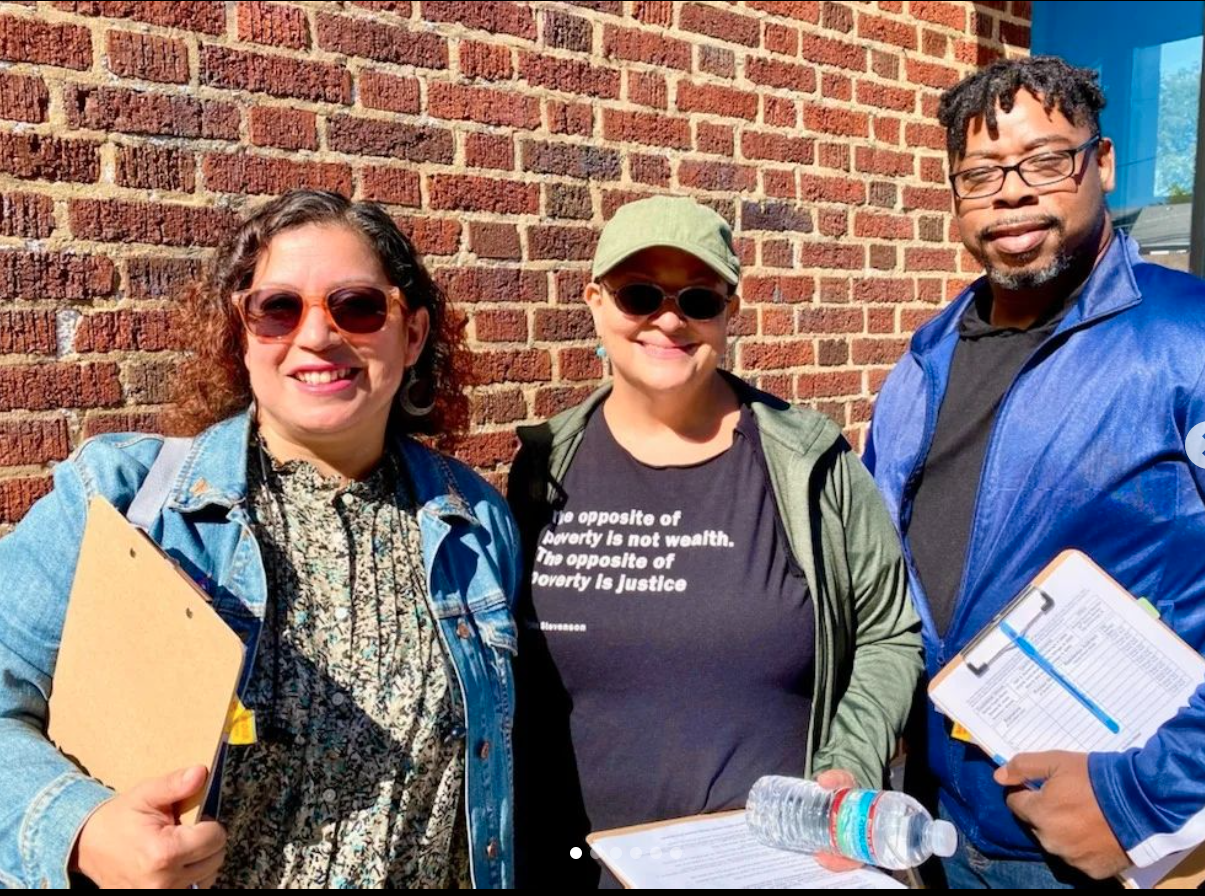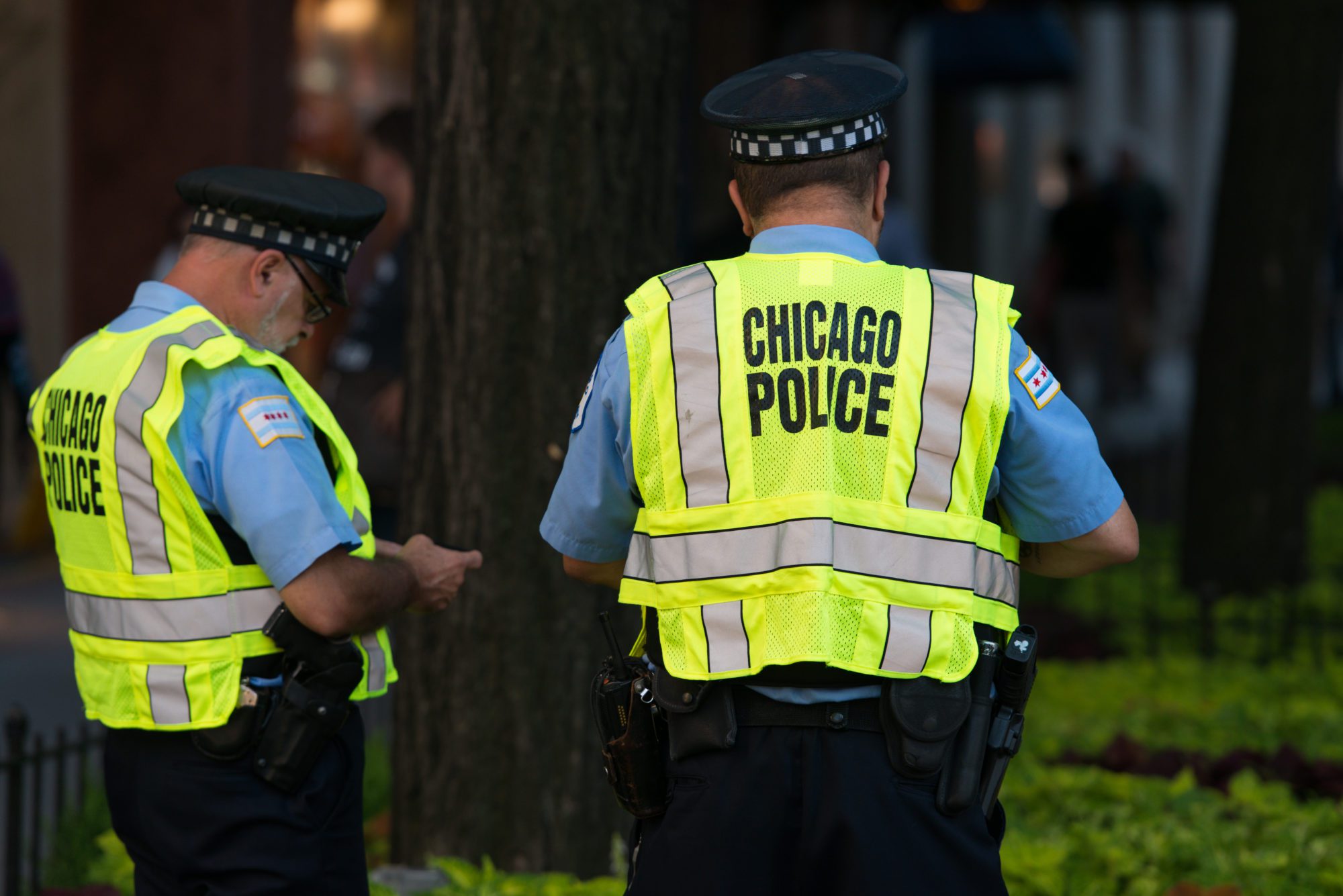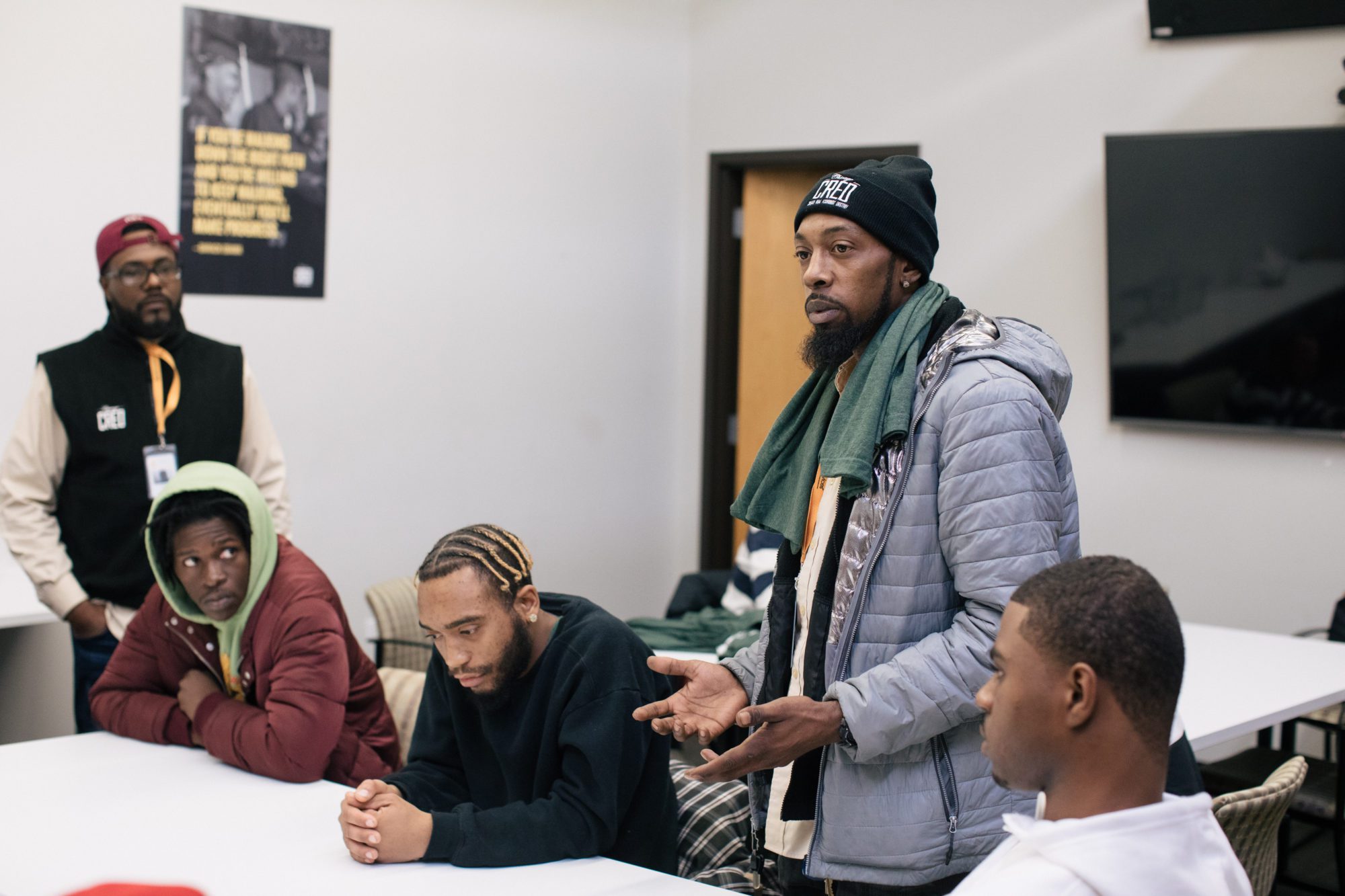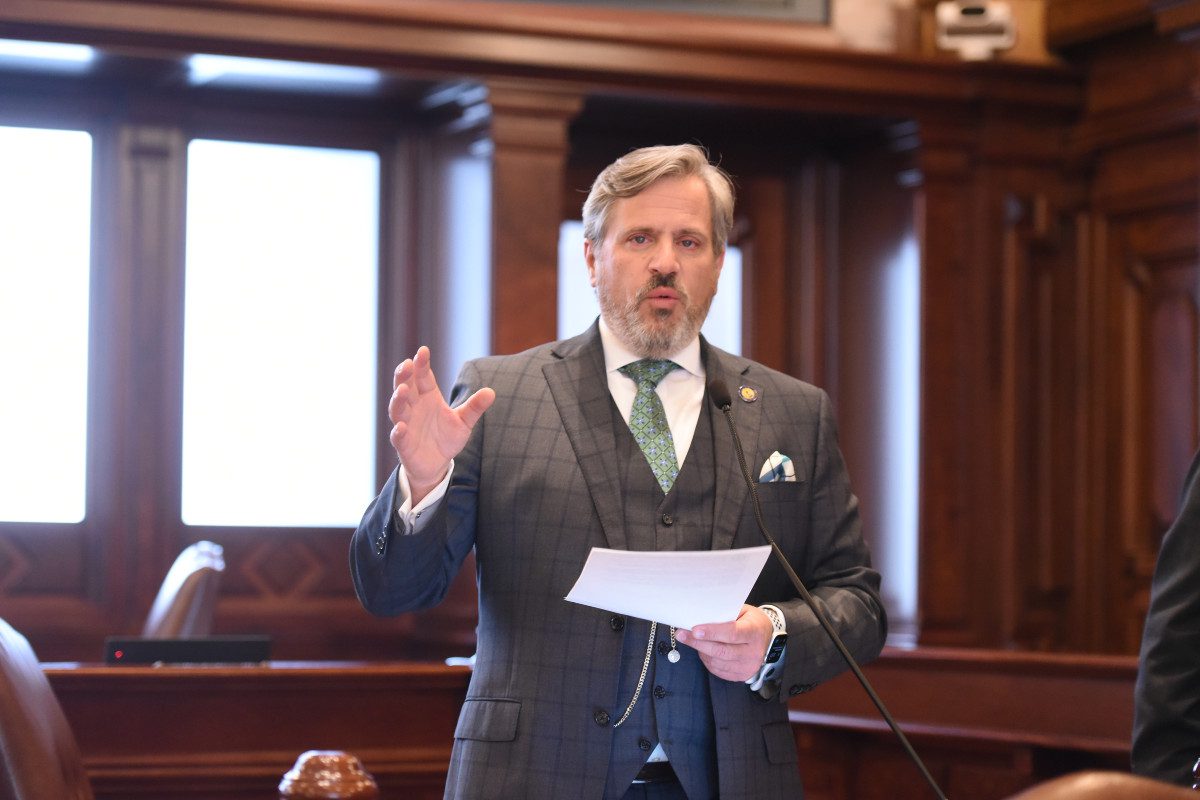In Chicago’s Police Oversight Elections, Progressives Targeted by FOP Prevail
Many community organizers won seats in new police councils, while the mayoral race produced a high-contrast runoff between the police union-endorsed Paul Vallas and the left-leaning Brandon Johnson.
| March 1, 2023

In addition to ousting incumbent Lori Lightfoot in the mayoral election on Tuesday, Chicagoans also elected the members of their new police council districts, bodies created to exercise oversight over the police. These races were a rare experiment in putting police accountability in the hands of voters, but the city’s brash police union sought to squash the effort before the ballots were even cast.
The Fraternal Order of Police (FOP) recruited election lawyer Perry Abbasi to run in the 25th District and legally challenge slates of progressive candidates in the 19th, 20th, and 24th Districts to get them kicked off the ballots. (Each district elects three members.) The challenges failed, enabling all these slates—made up largely of grassroots activists—to remain in the running.
And on Tuesday they largely prevailed. In all of the 19th, 20th, 24th, and 25th Districts, these progressive slates appear to have swept all three available seats—going 12 for 12.
Abbasi himself finished last in the West Side district he was running in. Asked for his reaction, Abbasi simply congratulated the winners.
“We made history yesterday and we decisively beat the FOP,” Frank Chapman, an advocate with the Chicago Alliance Against Racist and Political Repression (CAARPR) who helped lead the movement that set up these police council districts, told Bolts on Wednesday morning. Other groups that endorsed these slates include United Working Families and ONE People’s Campaign.
Saúl Arellano, one of the victorious candidates in the 25th District who was backed by CAARPR, is a 24-year old student at Northeastern Illinois University. An immigrants’ rights advocate himself, he is the son of immigration activist Elvira Arellano, who in 2006 drew national attention when she sought shelter from ICE agents in a Chicago church.
“I am just a vessel fighting for social justice, and I’m just an instrument here to serve the community,” Arellano told Bolts on Tuesday after his win. “The people in the communities are the ones that are in charge of the decisions that are being made, and that we’re not doing no backroom deals, but that this is transparent and this is for and by the people.”
Rev. Dr. Marilyn Pagán-Banks, the director of the nonprofit soup kitchen A Just Harvest and a founding member of the Coalition to End Money Bond, won a seat for the 24th District. She too defeated a candidate endorsed by the FOP.
Pagán-Banks told Bolts that, during the campaign, she had to fight off some voters’ anxiety that FOP-backed candidates would do well. She did not want “that just becoming an excuse to just throw it all away,” she said. Instead, she added, that concern created “the urgency behind making sure that we got the right people in place.”
Still, some FOP-backed candidates prevailed in police council races in other areas of the city. Of 17 candidates endorsed by the FOP in contested races citywide, seven won in the Eighth, Ninth, 16th, and 22nd Districts. (Those are located around the neighborhoods of Chicago Lawn, Deering, Jefferson Park, and Morgan Park, respectively.)
Lee Bielecki, a retired CPD sergeant, won in the 22nd District despite having a record of 24 complaints, according to the Citizens Police Data Project. That’s more than the vast majority of percent of other CPD officers. Asked about how the police should be reformed by The Chicago Reader, Beilecki said, “The police are doing a good job, and need more resources.”
The FOP scored its biggest success in the mayoral race, with a major test now looming for the police union in five weeks.
The candidate it endorsed, Paul Vallas, finished first with roughly 34 percent, far ahead of the rest of the field. He will move to a “Top 2” runoff on April 4.
Vallas ran a law-and-order campaign, assailing Lightfoot over the city’s crime rate and calling for hiring more Chicago Police Department (CPD) officers. He did well in the whiter Southwest and Northwest wards, which are also home to large numbers of police officers and firefighters.
Vallas will face Brandon Johnson, a Cook County Commissioner and former Chicago Public Schools teacher who ran with the backing of the Chicago Teachers Union and occupied the progressive lane among the major candidates. In his campaign, Johnson argued for improving neighborhood institutions like schools, housing and public transportation as a means of improving safety. Lightfoot, who attacked Johnson harshly during the campaign for threatening safety, finished third and was knocked out after a single term in office, something that has not happened since Jane Byrne lost her reelection bid in 1983.
One event for which Lightfoot was roundly criticized during her tenure in office was her handling of the botched police raid on social worker Anjanette Young’s home. After campaigning on a promise to “bring in the light” to Chicago’s notoriously corrupt and untransparent way of doing politics, Lightfoot sought to block the release of tapes from the raid and fought Young’s lawsuit against the city tooth and nail.
With 99 percent of precincts reporting as of publication, Johnson claimed 20 percent to Lightfoot’s 17 percent. A fourth candidate, U.S. Representative Jesus “Chuy” Garcia, received 14 percent. Five others split the rest of the vote.
Some of the more than 100,000 mail-in ballots received remain to be counted in Chicago, and could potentially shift the outcomes in a few of the tightest races for police councils.
Leading up to the April runoff, Chicagoans will see to another round of intense campaigning. Bolts reported earlier this month on efforts by local violence intervention organizations to scale up approaches to solving shootings and murders that prioritize alternatives to incarceration and traditional policing, and on those issues the contrast between Johnson and Vallas is stark. Vallas touts his plan to resurrect “broken windows” policing through increased patrols and the introduction of a “robust Public Nuisance ordinance.”
Vallas has said he sees a role for alternative strategies to curb violence but believes that they should operate in conjunction with police, in a model he calls “community-informed policing” on his campaign website.
“Addressing the mental health needs in the community really requires that you not only reopen the mental health clinics… but you literally need to have one in every police station,” Vallas said at a January candidate forum.
Johnson has attacked Vallas’s association with the FOP leadership and has expressed much more skepticism about the city’s massive investment in police, but his campaign has committed to keeping CPD’s budget at current levels. His campaign website states that he intends to “work with police and first responders to invest in community-based interventions that de-escalate conflict, reduce violence and make our neighborhoods safer.” For Johnson, this means a focus in particular on youth employment.
Even more than the crowded first round, the April runoff may become a stark referendum on whether Chicagoans support a return to hard-line policing measures as called for by the FOP, or whether they want to pursue alternative strategies like funding violence intervention groups at scale or reopening closed mental health clinics as part of the treatment not trauma campaign. By putting forth their slate of candidates in the police district council races, the FOP bet that voters would agree with their hard-line stance and often lost. Vallas in April will be its next shot.
In the meantime, the candidates elected to the police council districts are already preparing to take their roles, and some are hoping to use their new bully pulpit to shape the conversation on the direction that policing will take in the city.
“I hope that this idea that healing needs to be part of any organizing work and restorative work needs to be part of any type of conversation we have around safety,” Pagán-Banks told Bolts. “You do have to come from a place of love and healing for the community.”




